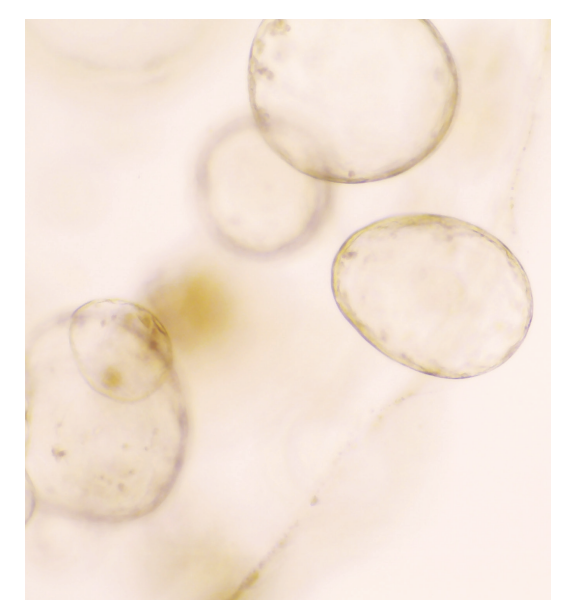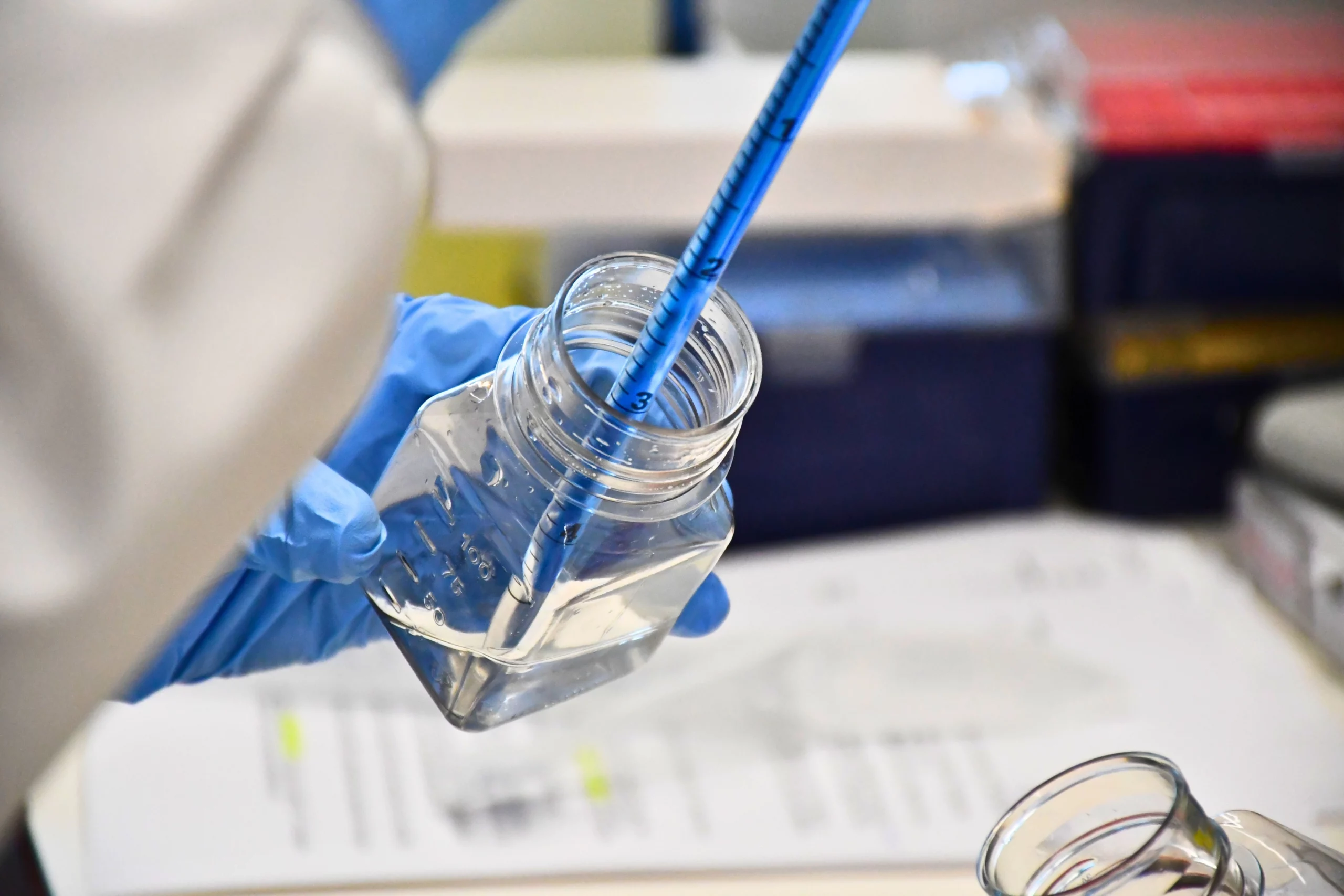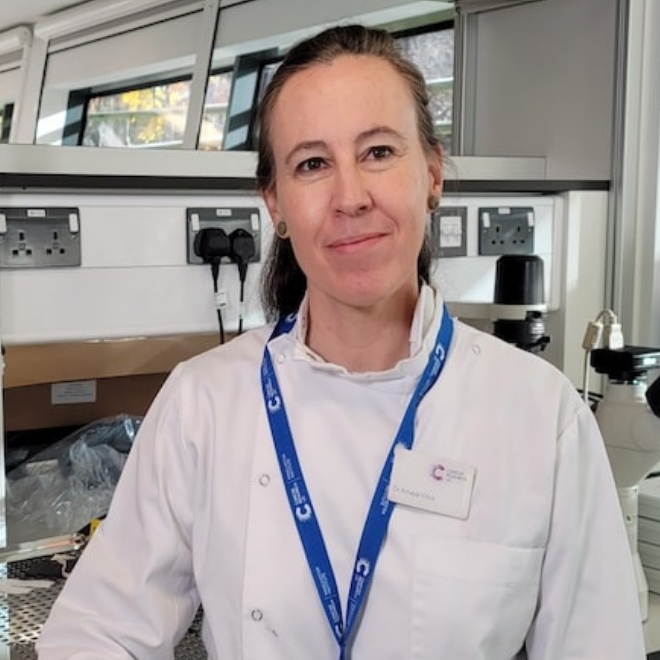Article highlights & insights
Aggressive and metastatic cancers show enhanced metabolic plasticity1, but the precise underlying mechanisms of this remain unclear. Here we show how two NOP2/Sun RNA methyltransferase 3 (NSUN3)-dependent RNA modifications—5-methylcytosine (m5C) and its derivative 5-formylcytosine (f5C) —drive the translation of mitochondrial mRNA to power metastasis. Translation of mitochondrially encoded subunits of the oxidative phosphorylation complex depends on the formation of m5C at position 34 in mitochondrial tRNAMet. m5C-deficient human oral cancer cells exhibit increased levels of glycolysis and changes in their mitochondrial function that do not affect cell viability or primary tumour growth in vivo; however, metabolic plasticity is severely impaired as mitochondrial m5C-deficient tumours do not metastasize efficiently.
We discovered that CD36-dependent non-dividing, metastasis-initiating tumour cells require mitochondrial m5C to activate invasion and dissemination. Moreover, a mitochondria-driven gene signature in patients with head and neck cancer is predictive for metastasis and disease progression. Finally, we confirm that this metabolic switch that allows the metastasis of tumour cells can be pharmacologically targeted through the inhibition of mitochondrial mRNA translation in vivo.
Together, our results reveal that site-specific mitochondrial RNA modifications could be therapeutic targets to combat metastasis.
Aggressive and metastatic cancers show enhanced metabolic plasticity1, but the precise underlying mechanisms of this remain unclear. Here we show how two NOP2/Sun RNA methyltransferase 3 (NSUN3)-dependent RNA modifications—5-methylcytosine (m5C) and its derivative 5-formylcytosine (f5C) —drive the translation of mitochondrial mRNA to power metastasis. Translation of mitochondrially encoded subunits of the oxidative phosphorylation complex depends on the formation of m5C at position 34 in mitochondrial tRNAMet. m5C-deficient human oral cancer cells exhibit increased levels of glycolysis and changes in their mitochondrial function that do not affect cell viability or primary tumour growth in vivo; however, metabolic plasticity is severely impaired as mitochondrial m5C-deficient tumours do not metastasize efficiently.
We discovered that CD36-dependent non-dividing, metastasis-initiating tumour cells require mitochondrial m5C to activate invasion and dissemination. Moreover, a mitochondria-driven gene signature in patients with head and neck cancer is predictive for metastasis and disease progression. Finally, we confirm that this metabolic switch that allows the metastasis of tumour cells can be pharmacologically targeted through the inhibition of mitochondrial mRNA translation in vivo.
Together, our results reveal that site-specific mitochondrial RNA modifications could be therapeutic targets to combat metastasis.
Institute Authors
Groups
Group leader
Research topics & keywords
All publications
https://doi.org/10.1038/s41420-025-02582-x
Mutant p53 induces SH3BGRL expression to promote cell engulfment
1 July 2025
Institute Authors (5)
Garry Ashton, John Weightman, Wolfgang Breitwieser, Sudhakar Sahoo, Antonia Banyard
Labs & Facilities
Computational Biology Support, Flow Cytometry, Molecular Biology
1 July 2025
https://doi.org/10.1016/j.celrep.2025.115603
Functional characterisation of the ATOH1 molecular subtype indicates a pro-metastatic role in small cell lung cancer
27 May 2025
Institute Authors (2)
Caroline Dive, Kathryn Simpson
Research Group
Small Cell Lung Cancer Biology
27 May 2025
https://doi.org/10.1016/j.ccell.2025.04.001
Stromal lipid species dictate melanoma metastasis and tropism
24 April 2025
Institute Authors (5)
Amaya Viros, Duncan Smith, Garry Ashton, Alex Baker, Tim Somervaille
Labs & Facilities
Biological Mass Spectrometry, Histology, Visualisation, Irradiation and Analysis
Research Group
Skin Cancer & Ageing
24 April 2025
https://doi.org/10.1038/s41467-025-58343-y
A human model to deconvolve genotype-phenotype causations in lung squamous cell carcinoma
4 April 2025
Institute Authors (4)
Carlos Lopez-Garcia, Robert Sellers, Sudhakar Sahoo, Caroline Dive
Labs & Facilities
Computational Biology Support
Research Group
Translational Lung Cancer Biology
4 April 2025
https://doi.org/10.1186/s12943-024-02157-x
The PI3K-AKT-mTOR axis persists as a therapeutic dependency in KRASG12D-driven non-small cell lung cancer
12 November 2024
Institute Authors (1)
Amaya Viros
Labs & Facilities
Genome Editing and Mouse Models
Research Group
Skin Cancer & Ageing
12 November 2024
https://doi.org/10.1186/s13045-024-01610-0
The small inhibitor WM-1119 effectively targets KAT6A-rearranged AML, but not KMT2A-rearranged AML, despite shared KAT6 genetic dependency
8 October 2024
Institute Authors (6)
Georges Lacaud, Mathew Sheridan, Michael Lie-a-ling, Liam Clayfield, Jessica Whittle, Jingru Xu
Research Group
Stem Cell Biology
8 October 2024
Our Research
Our research spans the whole spectrum of cancer research from cell biology through to translational and clinical studies
Research Groups
Our research groups study many fundamental questions of cancer biology and treatment
Our Facilities
The Institute has outstanding core facilities that offer cutting edge instruments and tailored services from expert staff
Latest News & Updates
Find out all our latest news
Careers that have a lasting impact on cancer research and patient care
We are always on the lookout for talented and motivated people to join us. Whether your background is in biological or chemical sciences, mathematics or finance, computer science or logistics, use the links below to see roles across the Institute in our core facilities, operations teams, research groups, and studentships within our exceptional graduate programme.











